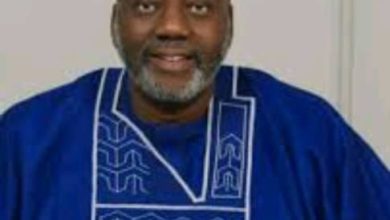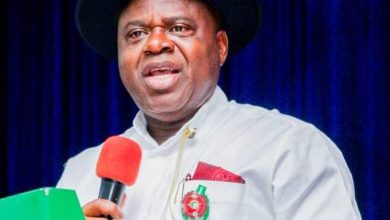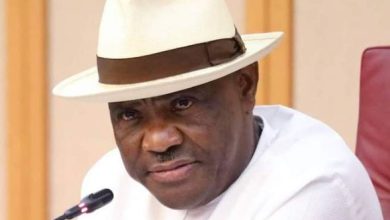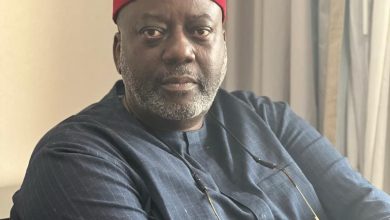Nigeria practicing civil rule, not true democracy – Akinyemi
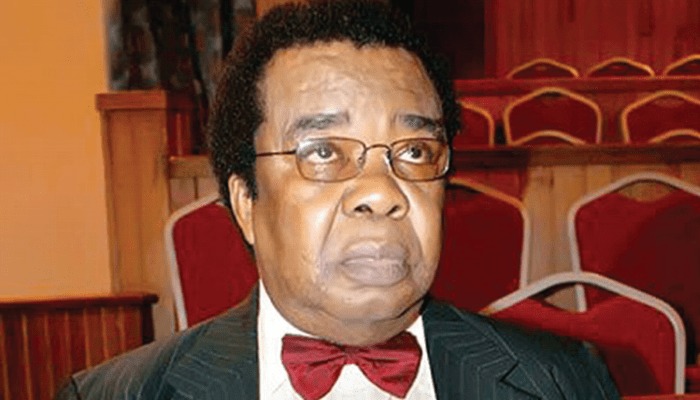
Twenty-five years after Nigeria’s return to civilian rule in 1999, former Minister of External Affairs, Professor Bolaji Akinyemi has declared that the country has yet to achieve true democracy.
In a keynote address at the Songs of Nigeria Festival awards ceremony (SONIFES) in Abuja on Tuesday, Akinyemi drew a stark distinction between the civilian rule Nigeria has practised and genuine democracy.
“What we got in 1999, and we have practised since then is civilian rule. Democracy is still what we are working upon,” Akinyemi stated. “So we don’t go to sleep thinking that we have achieved our purpose.”
The veteran diplomat’s critique highlighted numerous areas where he believes Nigeria has fallen short of democratic ideals over the past 25 years of civilian governance.
On education, he lamented insufficient funding and failure to get children off the streets and into schools, which he deemed essential for real democracy.
Akinyemi argued that democracy requires far more than just holding elections, pointing to deficiencies in education, infrastructure, women’s empowerment and the rights of local governments.
The former minister also denounced the tendency to celebrate minor road projects as major infrastructure development accomplishments.
Women’s representation in Nigeria’s parliament continues to fall below the 35% target set by the Beijing agreement, in Akinyemi’s assessment.
He also accused state governments of financially stifling and undermining local government authorities in contravention of democratic principles of governance.
He said, “Democracy is not just voting at election time. Electing a government is one part of democracy, and it is essential that we keep hammering. Those of us who speak out, keep hammering at this.
“If we don’t have clean water, if we don’t have what even the United Nations has emphasised, which is education, we don’t put resources in education; if we don’t get children off the streets, all of these things, which we could classify under infrastructure purposes, then we are a long way from democracy. There are a lot of infrastructural developments.
“And this, I concede, although like everything that we do in Nigeria, we abuse the concept of infrastructure. Why should a governor with all paraphernalia come to cut the tape of a five-mile, 10-mile road and we regard that as development?
“What else is the governor supposed to be doing? That is not what one means by development, because he’s just doing his job.
“But it has become, like everything else in this country, something that we practice. Roads, these days, tips are spread across roads. Let us go beyond that.
“Let us put the children in school. Let us have women’s development. The Beijing agreement was that 35% of women should be represented in parliament. Have we achieved that? The answer is no. So we must work towards that.
“Look at what has happened with Local Government. If we are going to be fair, and if we are going to be truthful, the state government has almost killed it.
”I don’t want to get into the debate right now as to whether it is the business of the state, what it does with the local government, within the concept of true federalism, that the federal government has no business with local government.
“Let us leave that alone for now. But the local government that is under the state, financially, have suffered considerably.
”Not enough money has been given to them. The money voted for them by the Federal Government, the state has found a way around this money not getting to the Local Government.
Let us leave that alone for now. But the Local Government that is under the state, financially, have suffered considerably.
“And this is what has led to the Honorable Attorney General having to file a case at the Supreme Court, taking all the states to Court over this issue of Local Governments.
”The solution to a problem has to be found in the assessment of the problem, and not for us to go into a debate as to whether true federalism means we should leave the feet or the boots of the state governors upon the neck of the local government.”
Akinyemi pushed back against claims that Nigeria’s Presidential system is prohibitively expensive, arguing that “It is the human beings who are operating the system who decide to make the Presidential system costly” through inflated compensation.
According to him, “Nobody decides, or it is the people, those we voted into power, who decide exactly how much they are paid, who decide how much their allowances are?
“If we decide to cut the salaries and the allowances of the Executive by one-third, decide to cut the salaries and allowances of members of the National Assembly by one-third, we will find out that the Presidential system is not as expensive as we have made it. It is just sheer laziness.
”We run away from the problem, and then, in an attempt to deceive the people, we come up with a solution, which, since that solution is going to be put in place by human beings, may even then end up.
“Who will decide what the salaries of the Prime Minister should be? Who will decide what the salaries of the Parliamentarians will be? Who will decide how many Ministers, a Prime Minister will have from members of Parliament and what each one will be entitled to?
So, ladies and gentlemen, in discussing this issue of democracy, I have started from the beginning that we are not practising democracy. We are practising civilian rule.
“If we are really serious that we want to practice democracy, then let us address all these issues which are staring us in the face,” Prof Akinyemi challenged.
He called on Nigeria to identify its democratic shortcomings and formulate its model of “Nigerian federalism” rather than attempting to imitate other nations’ federal structures.
He insisted there is no universal model of “true federalism” that all countries follow.
“I have argued in several places that there is nothing called true federalism. If you look at the federalism that is practised in Australia, compare it with the federalism practised in Brazil, and compare it with the federalism practised in Canada.
“Compare it with even the cruising federalism that is being practised in Britain, and then the federalism being practised in the United States; you will find out that apart from some issues which are common to these federal structures, there are massive differences in the federalism that is being practised in this country.”
”So when we talk about true federalism, which one is Nigeria supposed to pursue? Therefore, we must get it clear in our mind what kind of federalism we wish to practice.
“We must identify the problems, we must seriously tackle the problems, the issues, and then we can have Nigerian federalism. To have Nigerian federalism is not something to be ashamed of.
”To have Nigerian federalism is not something to be apologetic about. We need to share laziness for us to keep talking about, oh, this is what is done in America, let’s copy it, when it may not suit us. We also must not confuse structures with human personalities,” he added.
In her welcome address, SONIFES ’24 President Dr. Elizabeth Ben-Iheanacho hailed the silver anniversary as a milestone worthy of commemorating Nigeria’s democratic journey through its rich cultural traditions.
“Our songs, festivals, music, films, theatre, dances and traditional institutions have been the bulwark of making democracy in Nigeria the collective experience of the people,” Ben-Iheanacho stated.
Drawing on spiritual numerology and popular symbols, the SONIFES president described the number 25 as signifying grace, glory, law, overlap, faith, intuition and confidence.
She deemed the 25-year mark as a “landmark worthy of celebration through songs, dances and the best of our cultural performances.”
Ben-Iheanacho outlined three key messages that SONIFES aimed to impart in urging Nigerians to trust themselves deeply as individuals and as a people, imploring them to believe in the democratic process, and calling on all sectors to join hands in refining and entrenching democracy.
“SONIFES considers democracy in Nigeria too valuable a lifestyle for the people not to be involved,” she affirmed.
The ceremony honoured icons, heroes and legends who have contributed to nurturing Nigeria’s democracy over the past quarter century.
Ben-Iheanacho congratulated the honorees after a “painstaking and rigorous selection exercise.”
She also paid tribute to often unrecognised individuals fervently committed to upholding democratic ideals in the country.
As Nigeria marked 25 years of civilian rule, SONIFES celebrated the occasion through the lens of the nation’s vibrant arts and culture.
The festival championed democracy as “the collective experience of the people” enabled by Nigeria’s rich heritage.


